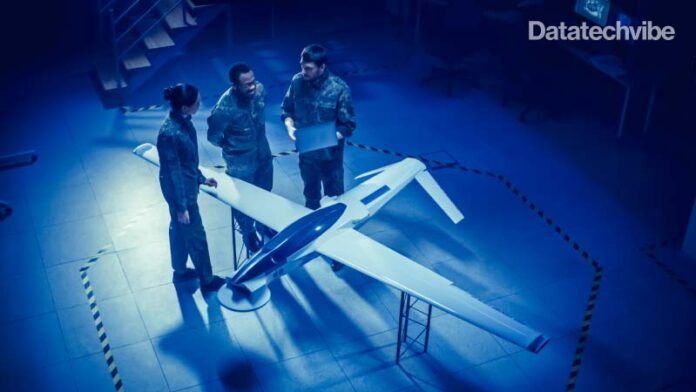Titan’s artificial intelligence gives militaries and federal agencies an advantage in live threat scenarios
Citadel Defense uses industry-leading artificial intelligence and machine learning to reliably detect, identify, and defeat air, land, and sea unmanned systems. Titan requires no signal expertise or training to operate and can be deployed in less than five minutes.
Citadel Defense has been awarded multiple counter-drone delivery contracts from Five Eyes (FVEY) customers. Citadel’s Titan counter unmanned aircraft system (CUAS) will be rapidly fielded in response to immediate operational needs. The Titan was selected based on positive reports from over a dozen evaluations and three years of successful military and federal agency deployments.
Titan delivers autonomous protection against an estimated 98 per cent of commercially available drone platforms with superior performance in urban environments. Low support, training, and sustainment costs deliver a force-multiplying benefit to militaries and governments during a time when resources and budgets are constrained.
Also Read: ECDC 2021: Cloud Computing in Saudi Arabia Fuelling Transformation
‘Titan was engineered with artificial intelligence, machine learning, and adaptive countermeasures to make every operator, regardless of training or job speciality, capable of preventing drone attacks with low-collateral impact,’ explains Christopher Williams, CEO of Citadel Defense.
Allied forces have become familiar with Titan technology during joint missions with U.S. forces. With legacy technologies struggling to address the evolving threat, allied forces have selected Titan’s capabilities based on operator trust and effectiveness in hundreds of different missions. The multi-domain mission flexibility offered by Titan equips expeditionary forces with necessary protection that has previously been unaddressed.
‘Many customers have missions where larger, highly integrated CUAS systems cannot be used. When Titan is not integrated with other sensors, it delivers cost-effective force protection as a standalone system that increases the safety of servicemen and servicewomen in high-risk environments,’ says Williams.
When asked how Citadel helps customers prepare for asymmetric threats, Josh Harman, Director of Business Development at Citadel Defense, emphasised, ‘Speed, agility, and responsiveness must go beyond technology. Citadel is always investing to stay ahead of a requirement, anticipating future threat environments, and working directly with our customers to adapt solutions to the mission need.’









